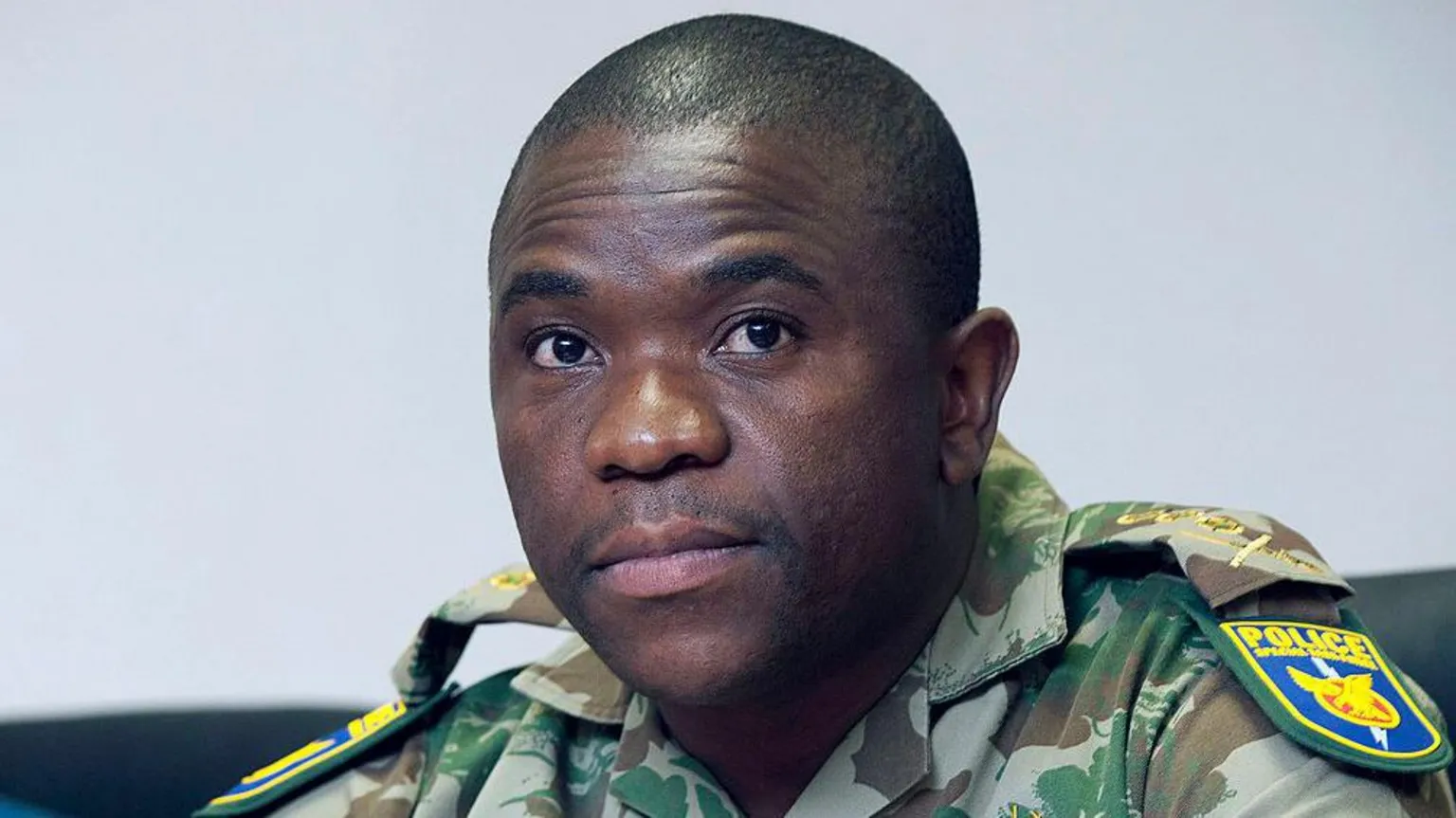Police vs Politics: Mkhwanazi's bold stand divides South Africa

Crime expert Calvin Rafadi of the University of Johannesburg described Mkhwanazi as “a no-nonsense person who takes the bull by the horns.”
In a bold and dramatic move that has stunned South Africa, KwaZulu-Natal police commissioner General Nhlanhla Mkhwanazi has accused Police Minister Senzo Mchunu of having links to criminal gangs, triggering a political storm and igniting widespread public support for the high-ranking officer.
Dressed in full tactical uniform and flanked by armed, masked officers, Gen Mkhwanazi addressed the nation during a press conference earlier this month, claiming that organised crime had deeply infiltrated the highest levels of President Cyril Ramaphosa's administration.
He alleged that Minister Mchunu had shut down a special police unit that was investigating political killings after it uncovered a drug cartel with influence across the business sector, correctional services, the prosecution authority, and even the judiciary.
“We are on combat mode, I am taking on the criminals directly,” declared Gen Mkhwanazi in a nationally televised statement, portraying himself as a determined officer unwilling to be silenced.
The allegations are unprecedented, marking the first time a senior police officer has publicly accused a sitting cabinet minister, especially one in charge of policing, of collusion with criminal networks.
The impact was immediate: Mchunu denied the claims, calling them “wild and baseless,” but the public reaction leaned heavily in Mkhwanazi’s favour.
Within hours, the hashtag #HandsOffNhlanhlaMkhwanazi surged to the top of X (formerly Twitter), as many South Africans expressed admiration for the 52-year-old officer’s courage.
Crime expert Calvin Rafadi of the University of Johannesburg described Mkhwanazi as “a no-nonsense person who takes the bull by the horns.”
Mkhwanazi’s reputation as a fearless officer was first cemented in 2011, when he suspended Richard Mdluli, then head of crime intelligence and a close ally of former President Jacob Zuma.
Mdluli was later jailed for kidnapping, assault, and intimidation, vindicating Mkhwanazi’s decision.
At the time, political leaders had expected the young officer then just 38, to be easily influenced.
But he defied pressure and also accused political figures of interference during a parliamentary appearance.
Though he was later dismissed from his national role, he was quietly reappointed in 2018 as KwaZulu-Natal’s police commissioner by then-Minister Bheki Cele.
The closure of the elite investigative unit probing political killings in KwaZulu-Natal by Mchunu is what prompted Mkhwanazi’s public outburst. He lamented that 121 investigation files were now “gathering dust” at national police headquarters.
“I will die for this badge. I will not back down,” he vowed during his recent address, further reinforcing his public image as a principled officer committed to reforming a police service widely seen as compromised.
Indeed, South Africans have grown increasingly frustrated with rising crime levels and what they see as a corrupt and dysfunctional police force.
A Human Sciences Research Council survey recently showed public trust in the police had sunk to just 22%.
Since 2000, the country has seen around 10 different national police commissioners, with some facing criminal charges or corruption convictions—including former chief Jackie Selebi, who was sentenced to 15 years in 2010 for taking bribes from a notorious drug dealer.
Gareth Newham of the Institute for Security Studies noted that the dysfunction reaches across all levels of the police, highlighting the urgent need for reform.
Still, Gen Mkhwanazi’s own record hasn’t been free of controversy.
He was recently cleared of allegations that he had interfered with an investigation involving a senior prisons official—charges the opposition Economic Freedom Fighters (EFF) dismissed as a smear campaign intended to undermine a committed officer.
His officers have also faced criticism for using excessive force, with some suspects reportedly killed in shootouts. Yet according to Newham, many South Africans are willing to overlook these issues.
“They want to have a hero in the police,” he said, describing Mkhwanazi as a “cop’s cop”.
In the wake of the scandal, Mchunu is set to be replaced by acting Police Minister Firoz Cachalia, a law professor and former provincial minister with deep ties to South Africa’s anti-apartheid movement.
In an interview with Newzroom Afrika, Cachalia called Mkhwanazi’s actions “highly unusual” but said that if the claims prove true, “we will be able to see in retrospect that he was perfectly justified in doing what he did”.
Now, all eyes are on what comes next. Gen Mkhwanazi must back his claims with evidence, or he risks losing the public goodwill that currently surrounds him.
But for the moment, he has captured national attention as a rare figure willing to take on political power from within the system, twice in his career.
